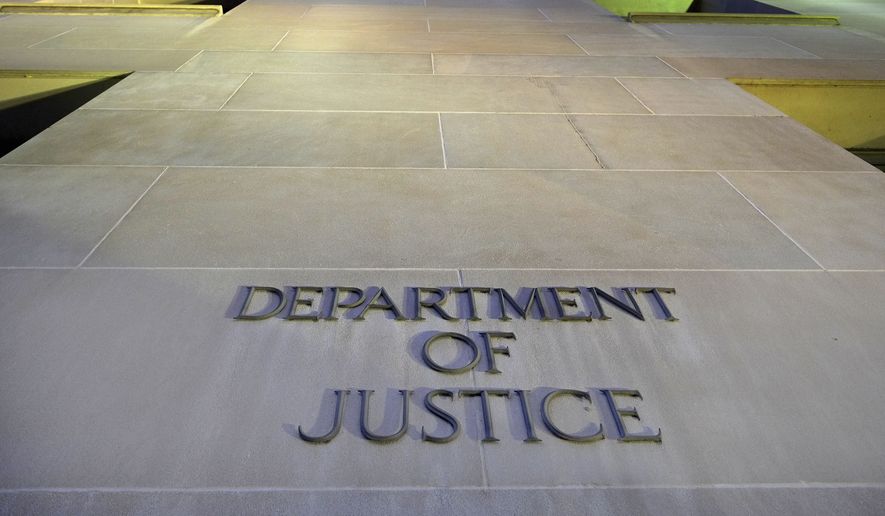The Justice Department will no longer use a program meant to improve police-community relations to address concerns about officer use of force, instead focusing the initiative on reducing violent crime.
The DOJ announced the changes Friday to the program run by its Office of Community Oriented Policing Services.
Law enforcement agencies had been able to request aid from the COPS office to make organizational and policy reforms that would improve trust between departments and the communities they serve. During the Obama administration, at least nine departments used the process to address use of force concerns.
Among them were the North Charleston Police Department in South Carolina, where city officials requested a review after officer Michael Slager was videotaped fatally shooting a black man, Walter Scott, in the back as he ran away from the officer. The St. Louis County Police Department also did a review that included use of force issues after the 2014 riots in Ferguson, Missouri.
The departments that examined use of force issues also used the program to address other matters like improving hiring practices and reducing racial bias in policing.
Under Attorney General Jeff Sessions, the new goals of the DOJ’s collaborative reform process will include topic areas like responding to mass demonstrations or active shooter incidents, strategies for reducing gang and drug activity, intelligence sharing with federal agencies, and de-escalation training.
The change means agencies seeking help on fatal police shootings or other use of force issues will have to look elsewhere, though an official briefed on the changes said the COPS office as a whole is still “open for business on best practices.”
The official said the DOJ will now end agreements with seven agencies that have COPS office assessments. Another seven departments that have not received initial assessments may opt into the program for assistance related to the new goals.
The decision angered police-reform advocates.
“Attorney General Sessions is deliberately dismantling the building blocks needed for comprehensive policing reform. His actions do not help police,” said Sherrilyn Ifill, president of the NAACP Legal Defense and Educational Fund, also calling for oversight hearings from the House and Senate judiciary committees.
The changes come after the attorney general announced a review of all DOJ activities in order to ensure they are promoting “officer safety, officer morale, and public respect for their work” and that the federal government is not hindering local control and oversight.
The department said the changes “return control to the public safety personnel sworn to protect their communities and focus on providing real-time technical assistance to best address the identified needs of requesting agencies to reduce violent crime.”
An administration official briefed on the proposal said that in recent years the collaborative reform process had evolved from a program that provided technical assistance on a specific issue to a broader adversarial assessment that incorporated critiques and deficiencies and monitored implementation of recommendations. Under the new model, the reform process will not be authoring audits or reviews of departments, rather it will connect the departments with leading law enforcement professional groups to provide assistance.
• Andrea Noble can be reached at anoble@washingtontimes.com.




Please read our comment policy before commenting.